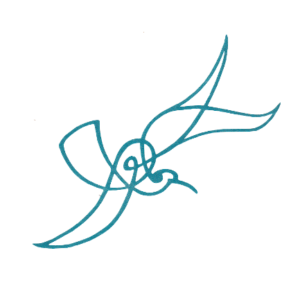Metaphorum Webinar Series
September-December 2023
Programme
We are pleased to announce our webinar series for this second semester 2023. See the programme below. Links for each webinar are provided in the body of its description. Please keep the dates free for the webinars that you are interested in attending. Please check the links within each one of the webinars, as the Cybersyn webinar series require registration. To register in these webinars, click the link provided and zoom will send you a confirmation email. You need to provide your name, email and the name of the cybernetic or systemic institution you belong to. Once received the registration, zoom will provide you with the link for the session you are registering to. Please register with enough time in advance to avoid trouble on the day of the webinar.
Given that 11th September 2023 is the 50th Anniversary of the Coup to Salvador Allende’s government in Chile, and the end of the Cybersyn project, we have three focused webinars in which we will be listening to the project’s leaders and commentators, discussing recent social media projects featuring the Cybersyn project, and reflecting on what we have learned and open questions concerning its relevance for the 21st century.
This series of webinars on the Cybersyn is organised jointly with ASC (the American Society for Cybernetics), WOSC (the World Organisation of Systems and Cybernetics); ELAPDIS (Association for Systems Thinking Education in Latin America) and the (British) Cybernetics Society, so we expect to have a wider participation from our sister organisations.
Before attending the Cybersyn webinars, we would like to invite you to contribute with any questions you may have about Evgeny Morozov’s podcast, or with any questions for Raul Espejo, who was the main leader of the Cybersyn project in Chile, concerning the project and its relevance to the current historical moment.
Here is Miro board where you can leave your comments or questions. We shall select the most relevant questions for each Cybersyn’s webinar from the suggestions we get from this Miro board and invite a panel from our peer organisations to facilitate the conversation. The Miro board will continue to be available during the webinar to post any further comments or questions for continuing the conversation with those interested (details to be announced later).
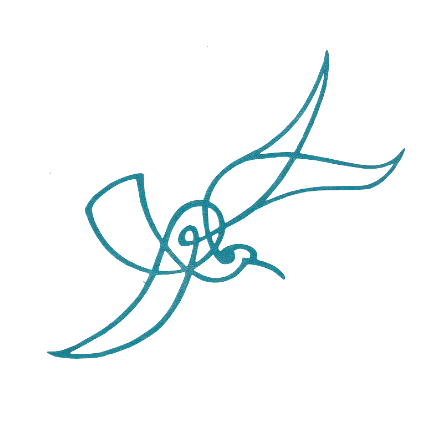
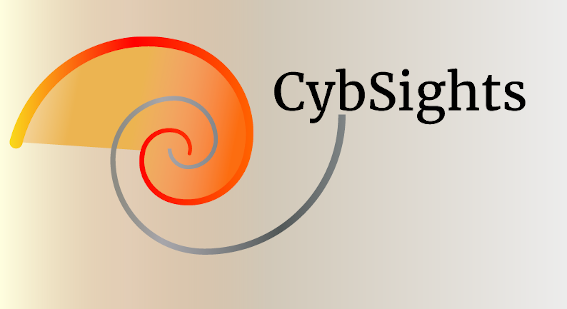
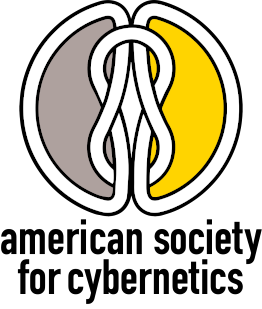
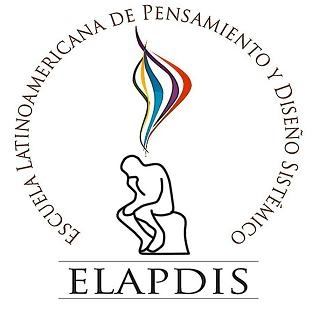
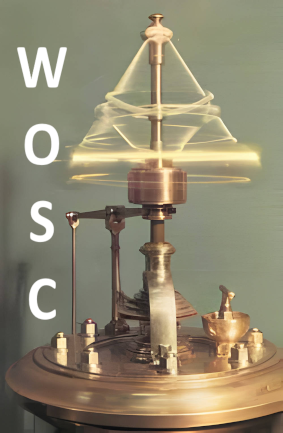

An overview of a global discussion platform
Ian Kendrick and John Waters
September the 13th 2023. 5:00-6:30 pm (UK summertime)
This webinar will explore several aspects of the large-scale communications platform outlined briefly at the 2023 Metaphorum Conference, including the vision that led to its creation, the problems already identified over a number of years that motivated its creation, and numerous factors that had to be considered before any work could begin.
The need for such a platform has been evident to a number of people for a very long time, but this is really something that has become fully clear only recently. These conclusions have been reached in very different ways, along very different paths, and with very different assumptions about what might or might not be practicable. Indeed, such a project will probably have seemed overwhelmingly daunting to most. Almost by chance (although that does favour the prepared mind), a spark of synergy led quite recently to a possible realisation of what had previously felt only like a distant potentiality.
The following needs have been particularly important in bringing this vision into clearer focus:
-
The need to support connections between ethos-cohered communities as self-organising, co-evolving structures.
-
The need to support and enhance the viability of autonomous organisations within appropriate recursive structures.
-
The need to enhance the capability of any viable organisation to apply the VSM in support of its own viability.
As a starting point, a small number of autonomous recursive structures have been created, each for use by a different organisation, on its own terms, acting according to its own rules. The only thing shared by these organisations at this stage is a significant commonality of ethos.
The one organisation on which we focus here is Metaphorum. This is partly because the initiative was sparked within Metaphorum dialogue. It is mainly because Metaphorum is a community exceptionally rich in highly relevant and valued skills that will be needed both to shape this embryo and to nurture its development following its birth.
Following a brief glance at the overall structure, we shall demonstrate the platform in greater detail by focussing upon Metaphorum’s community and, in particular, the support the platform provides to SIGs (Special Interest Groups) within Metaphorum itself.
John Waters
After studying engineering at university, John spent a few years designing and developing communications equipment, data loggers and other instrumentation. Since life in a laboratory can only sustain one for so long, he abandoned this relative security for an enlightening series of adventures within and among various co-operative enterprises and eventually found a stimulating niche in the diverse world of community economics, collaborating on feasibility studies, exploring alternatives to the status quo, and spending decades contemplating different approaches to the matching of resources to needs in way more compatible with the viability of both people and the planet. Along this rocky path, he was sustained by a combination of eudemony and serendipity, nourished by autodidactic explorations and the application of diverse systems concepts.He is currently exploring (with colleagues) ideas around contributive economics and support for ethos-cohered communities. When pressed for a label, he generally prefers humble newt farmer.
Ian Kendrick
Ian specialises in facilitating teams to develop, communicate and deliver strategic innovation – from inception to growth – in turbulent environments. Working with NGOs and commercial organisations, he engages with ethos cohered communities looking to achieve systemic transformation in their environment and in themselves. This work brings the ability to re-perceive situations afresh to enable transformation and continuous adaptation.
Ian uses approaches that are cybernetic and systemic, engage with complexity and bring different perspectives to bear on the matter in hand. These approaches include the VSM, Syntegration, futures thinking including Three Horizons, discontinuous, disruptive and transformative innovation, decision making and narrative creation.
He led a major research project exploring the emergence and agency of online communities and their potential to address the needed variety to address major societal issues and essential change in our world. This work forms the foundation for much of Ian’s work with many online communities, helping them to form, connect, cohere and amplify their work together.
Ian has held senior positions in small and large organisations and facilitated many through difficult periods of transition as CEO. He has worked in cross cultural appreciation and local communities. Ian is a fellow of the Royal Society for the Arts, co-founder of H3Uni and a Samaritan in the UK.
The Santiago Boys – Cybersyn’s Podcast
A Panel with Evgeny Morozov,
Sept 26th 2023, 5:00-6:30 pm (UK summertime)
Half a century ago, South America was on the cutting edge of contesting the power of multinational companies in the sphere of telecommunications. More than that, a distinct blend of radical economics, cybernetics, and democratic politics led to the articulation of its own bold visions for how to use computing power in the name of non-corporate but people-centric development projects. As we confront the challenges presented by the Big Tech of today – from fake news to generative AI – it’s time to re-examine that experience. This is partly the task undertaken in the Santiago Boys podcast, which, in telling the story of Project Cybersyn and Stafford Beer’s involvement in it, aspires to recover some of those earlier experiences in order to inform our own present conundrums with Big Tech.
Webinar link (require registration – see above how to register):
Topic: Evgeny Morozov Webinar’s Zoom Meeting
Time: Sep 26, 2023 05:00 PM London
Evgeny Morozov
Evgeny Morozov is the author of several award-winning books about technology and politics and, most recently, the producer and host of The Santiago Boys podcast. He is also the founder and publisher of The Syllabus, a knowledge discovery platform. Evgeny holds a PhD in History of Science from Harvard University and has previously been a visiting scholar at Georgetown and Stanford universities.
For participants in the webinar, you can find the (9 hours) podcast at:
https://open.spotify.com/episode/6mhP2v4GZXzL2Zl6Ndmnne?si=26a01fc836554c38
You can also find an in-depth interview about the podcast (2 hours) at:
https://soundcloud.com/thismachinekillspod/269-the-mythology-of-cybersyn-ft-evgeny-morozov?fbclid=IwAR1eNshjMXZAa5lBV1MVydPLY0Bw3hKXdixtDnKbTb1ZV7AS6P5B6Y61InE
The Cybersyn Project
Professor Raul Espejo
September the 29th 2023. 5:00-6:30 pm (UK summertime)
In this contribution Raul relates Cybersyn’s vision to a democracy, beyond its current denomination closer to a capitalist democracy. Cybersyn’s vision was that of a world of communications and information in real time, a world of conversation spaces to balance the short and long term. It offered a utopian form of governance aimed at an egalitarian and non-bureaucratic society. It wanted participation, democracy, and accountability. It was a utopia for democratic viability rather than for democratic capitalism. After half a century we can reflect upon its meaning taking into account social, economic and technological developments since 1973.
Webinar link (require registration – see above how to register)
Webinar link:
Raul Espejo – Cybersyn’s Webinar
Time: Sep 29, 2023 05:00 PM London
Professor Raul Espejo
Former Professor of Systems and Cybernetics at the University of Lincoln, UK, and currently president of the World Organisation of Systems and Cybernetics -WOSC. He has chaired scientific committees of WOSC’s most recent world congresses in 2014 (Colombia), 2017 (Italy) and 2020/21 (Moscow online). His research is focused on organisational cybernetics and systems and has published and co-published over 120 papers, seven special issues of journals and five books. This published work includes the book: “Organizational Systems: Managing Complexity with the Viable System Model” (published with A Reyes in English in 2011 and 2016 in Spanish) and a special issue of the Futures journal: Futures of Society; the interactions revolution (2018). Under the scientific direction of Professor Stafford Beer he was operations director of the CYBERSYN project – organised in the context of the Chilean government to manage the country’s industrial economy Cybersyn, economics, and technology.
Cybernetics and the Digital Transition
(and the Cybernetics OF the Digital Transition)
John Beckford
October the 4th 2023. 5:00-6:30 pm (UK summertime)
Organisations that seek to survive and thrive need to address the substantial challenges of recognising and capturing the value of digital capabilities. Cybernetics, especially as applied to organisations, offers insights and capabilities that enable and accelerate the realisation of digital potential tackling the challenge in the three dimensions of purpose, people and process. Through insights, examples and case studies, John shows how he applies the ideas in research, development, and application.
If the process of transition is to be successful it needs to be, itself, cybernetic- goal seeking, adaptive, learning, reflexive. Thus, we go one to the exploration of “the cybernetics of the cybernetics”, a recognition of the allostatic nature of a viable organisation. If stability is an emergent property of a dynamical system, the transition to exploitation of digital capability must be complemented by a transition to adaptiveness as the basis of organisation.
Metaphorum is inviting you to a scheduled Zoom meeting.
Topic: Metaphorum’s Webinar Series
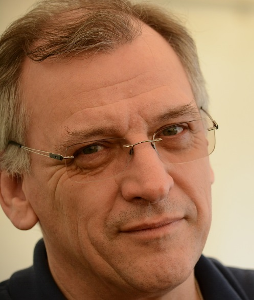
Professor John Beckford PhD MMS FCybS FRSA FIET
John is a partner in Beckford Consulting, Visiting Professor in the De partment of Civil, Environmental and Geomatic Engineering at University College London and in the Centre for Information Management at Loughborough University. He is Non-Executive Chair of both RISE Mutual CIC and Corehaus Limited and a Non-Executive Director of Fusion21 Limited, all social enterprises. John is President of the Cybernetics Society, holds a PhD in Management Systems and Sciences (Hull), is a Fellow of the Cybernetics Society, a Member of The Institute of Management Services, a Fellow of the Royal Society for the Arts and a Fellow of the Institute of Engineering and Technology.
John is author of: ‘Quality Management: Reconsidered for the Digital Economy’ (Routledge, 5th Edition, 2022), ‘The Intelligent Organisation’ (Routledge, 2nd Edition, 2020), ‘The Intelligent Nation’ (Routledge, 2021) and numerous reports, papers and articles.
John has been applying his knowledge of stakeholder engaged, information led adaptive organisation design, learning and transformation internationally for over thirty years across many organisations in the commercial, public and 3rd sectors.
John is currently developing a radical new model for the weather resilience strategy for Network Rail.
Further information about John can be found at: www.beckfordconsulting.com
Twitter: @johnbeckford email: john.beckford@beckfordconsulting.com
Phone: 07785 360249
Imagining the City (or anything else big scale) as a Commons: a Work in Progress
Professor Massimo De Angelis
November the 8th 2023. 5:00-6:30 pm (UK wintertime)
In the midst of devastating crises of social reproduction and ecological catastrophe, to think about radical social change in the ways we reproduce our lives in common on this planet is paramount. By radical social change I mean a change in some fundamental ways of the current “order of things” that governs and form our social cooperation, what we generally call capitalism The big question I am trying to address with this paper is around the organizational form of radical social change.
My analysis build on previous work in which I have identified two organizational axis through which social change must move in order to challenge — at least in given contexts — capitalist hegemony over social cooperation: the construction of commons, and the development of social conflict. In this paper I bring together these two axes by considering Stafford Beer VSM as a design model for a viable organisation whose identity is rooted in the pursuit of socially just end environmentally sustainable forms of social cooperation that prioritize social reproduction over the expanded reproduction of capital. My approach may be a bit different from conventional design of VSM models in two aspects. First, the operational domain (system 1) in the VSM is not only filled by members “operatives” of an organization, but also subjects drawn from society at large that participate in a variety of movements and struggles over social reproduction. Second, I am not trying to design an organisation of the city as a whole as a common, an ideal that is based on VSM. Rather an organisation of commons and movements around issues of social reproduction inside the city, whose meta-finality is to create different forms of social cooperation and thus to contrast capital. The city here is the theatre of such organization, the external environment that the organisation in question seeks to transform into a “commons”, but It could be a region, the nation, a branch of an industry or the world for that matter that is, any large scale social complex system. In this sense, within the current “order of things”, considering the city, or any other large-scale entity, as a common, is always a work in progress.
Metaphorum is inviting you to a scheduled Zoom meeting.
Topic: Metaphorum’s Webinar Series
Massimo De Angelis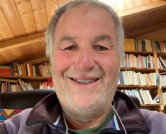
Massimo De Angelis is Emeritus Professor at the University of East London. Until September 2020 he was Professor of Political Economy and Social Change, at the same university. He has been intellectually influenced by the work of Karl Marx, autonomist Marxism, eco-feminism, political ecology, complexity theory and cybernetics. He has a degree in political sciences (Università Statale Milano) and a PhD in Economics (University of Utah), although neither of these two disciplines defines the boundaries of his research. For over thirty years, he has been researching, writing and teaching on issues around the commons, social conflict and contemporary capitalism and its many crises. His research is centered on the problematic of social change, of how we can collectively crack open the current mode of social cooperation hegemonized by capital’s rationality and value practices, and move to a post-capitalist society in which we can all live in dignity, mutual recognition and social justice, and construct models of social cooperation that are deeply democratic and respect the biophysical boundaries set by our planet earth. He was the founder of the web journal The Commoner in 2001, editor of the book series in Common for Zed Books, member of the Commons Observatory of the city municipality of Naples (2019-2021) and author of numerous publications, among which three research monographs, the last two dedicated to the question of the relation between commons, global capitalism and post-capitalist transformation (The Beginning of History, Value Struggles and Global Capital – Pluto 2007; and Omnia Sunt Communia. On the Commons and Post-Capitalist Transformation – Zed 2017).
Cybersyn 1973 / 2023
Bassam El Baroni & Jose-Carlos Mariategui
December the 6th 2023, 5:00- 6:30 pm (UK wintertime)
Curator and researcher Bassam El Baroni will present and discuss ‘Cybersyn 1973 / 2023’ an animated video he co-created in 2021 that delves into the question: How can we reimagine the artefactual Cybersyn for our hyper-financialized times? Curator and researcher José-Carlos Mariátegui will also participate in the discussion.
Webinar link (requires registration. See above instructions to register):
Time: Dec 6, 2023 05:00 PM London
Bassam El Baroni
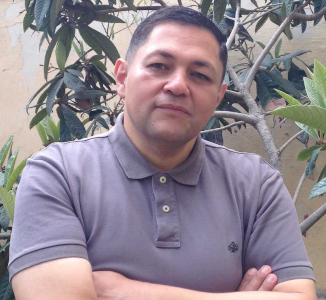
Bassam El Baroni is associate professor of curating and art mediation at the School of Arts, Design and Architecture, Aalto University. Formerly, he lectured at the Dutch Art Institute, ArtEZ University of the Arts, Arnhem (2013 – 2019) and was artistic director of the now folded non-profit art space ACAF – Alexandria Contemporary Arts Forum in Alexandria, Egypt (2005 – 2012). His most recent research engages with issues such as financialization in relation to artistic practices, AI and curating, artists’ engagement with infrastructural futures and histories, and new forms of artist-led activism.
Jose-Carlos Mariategui
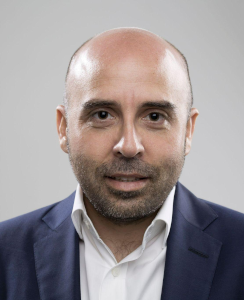
Writer, curator, scholar and entrepreneur on culture, and technology. Dr. Mariátegui is the founder of Alta Tecnología Andina – ATA, an organization working at the intersection of art, science, technology and socety in Latin America. His multidisciplinary research embraces media archeology, digitization, archives and the impact of technology in memory institutions. He is a Lecturer at LUISS (Rome), Research Fellow at the Department of Media and Communications of the London School of Economics and Political Science, and a Board Member of Future Everything (UK). Has published in journals such as AI & Society, Third Text, The Information Society, Telos and Leonardo and curated art and technology projects internationally for more than two decades. He recently co-edited a special issue for AI & Society on Cybernetics in Latin America (2022) and authored an extensive research on the video art collections in Latin America for Getty’s book Encounters in Video Art in Latin America.
